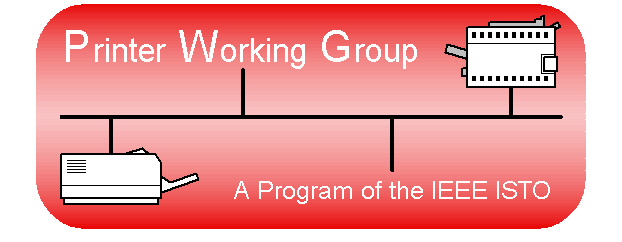The IEEE-ISTO Printer Working Group (PWG) has updated Internet Printing Protocol (IPP) Extensions v1.1 (PWG 5100.21-2019) and has developed a specification for safe G-Code that eliminates 3D Printing commands with safety or security concerns.

For those who do not know, the IEEE ISTO Printer Working Group (PWG) is a Program of the IEEE Industry Standard and Technology Organization (ISTO). Its members include printer and multi-function device manufacturers, print server developers, operating system providers, print management application developers, and industry experts. The goal of this alliance is to ensure a better functioning of all devices and tools leveraged to ensure a printing process.
The IPP 3D Printing Extensions specification v1.1 (PWG 5100.21-2019) extends IPP for 3D printing with a focus on popular Fused Deposition Modeling (FDM) devices that melt and extrude filaments of ABS, PLA, or other materials in layers to produce a physical 3D object. These IPP extensions can be used for other printing methods such as selective laser sintering (SLS) and stereolithography (SLA), as well as many other materials, such as concrete printing.
The v1.1 update clarifies that the requirements for implementing the 3MF file format are limited to those printers that do on-board slicing, adds attributes describing the build platform shape, nozzle and chamber environment, describes how to use the IPP Shared Infrastructure Extensions [PWG5100.18] with 3D printing, and defines a structured naming convention for the “material-type” attribute for values that aren’t registered with the PWG. This last addition is very important because it provides IPP with an extensible convention for specifying material identifiers from the wide variety of other standard and non-standard material identifiers.
The new PWG Safe G-Code Subset for 3D Printing v1.0 Best Practices document (PWG 5199.7-2019) defines a “safe” subset of G-code for use in 3D printing with IPP along with the capabilities and parameters needed to allow a client to generate G-code compatible with the printer. PWG Safe G-Code eliminates direct device control (e.g., “set extruder temperature”) and hardware access (e.g., “write file to SD card)” commands that pose serious safety and security concerns.
The PWG invites participation (to members and non-members) from anyone in the 3D printing/additive manufacturing community. Non-members are always welcome to participate in PWG standardization efforts. Sample code implementing the IPP 3D Printing Extensions specification v1.1 has been published in the PWG’s IPP Sample Code project on GitHub.
Remember, you can post AM job opportunities for free on 3D ADEPT Media or look for a job via our job board. Make sure to follow us on our social networks and subscribe to our weekly newsletter: Facebook, Twitter, LinkedIn & Instagram! If you want to be featured in the next issue of our digital magazine or if you hear a story that needs to be heard, make sure to send it to contact@3dadept.com

